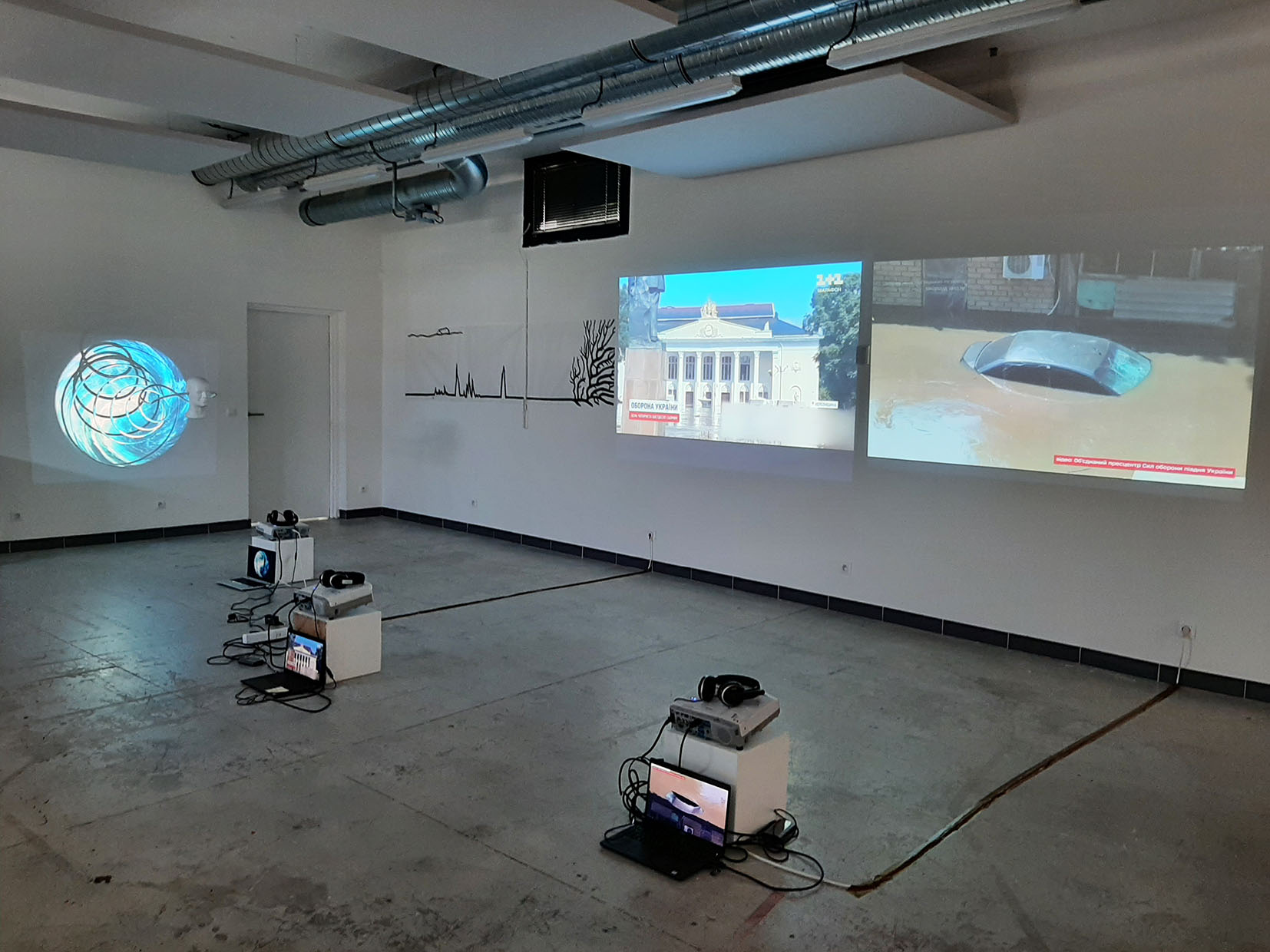
Ecocide

Art exhibition "Slava Ukraini. Ukrainian Art in Times of War”
Stadtwerke Water Tower, in Wesel, Germany, November 26, 2023 - January 26, 2024
Opening at 18:00, November 26, 2023.
Oksana Chepelyk, Artist Protection Fund Fellow 2023-2024, A*MIDEX and FIAS Fellow 2022-2023 Iméra Aix-Marseille University, Modern Art Research Institute of Ukraine.
Video diptych “Ecocide” by Oksana Chepelyk
The “Ecocide” video reveals a human and environmental disaster, the mass destruction of flora and fauna, poisoning of air or water resources caused by Russia's destruction of the Ukrainian Kakhovka dam on June 6, 2023, which became the largest man-made catastrophe in Europe in recent decades. It turned out that the undermining of the Kakhovka HPP and ecocide in Ukraine are completely absent from the world picture. The Black Sea belongs to the Mediterranean basin. Unfortunately, Russian aggression has also long ago evaporated from public discourse, although Bruno Latour emphasized that the war in Ukraine, which coincided with the ecological crisis, is creating a new ecological regime. Marine scientists emphasize the need to avoid "ocean colonization"; as a result of climate change "invasive species" migrate and displace "native species" changing the ecosystem.
The Anthropocene has gradually alienated humanity from the rest of the living world, thus paving the way for all the abuses that have resulted in the destruction of biodiversity and the modern climate disaster, where the sea has turned into an invisible underwater graveyard during the migration crisis. The reporting of ecocide is legitimized by the Western tradition for bees, bacteria and the animal world, but for voicing of genocide in Ukraine we must fight, as silence is, in fact, an act of collaboration with the aggressor. However, its ecological consequences will last a long time, even in the Mediterranean, given the so-called “butterfly effect", as acknowledged by French mathematician and engineer Henri Poincaré, and well-known from a short story "A Sound of Thunder" by Ray Bradbury of 1952 and developed by mathematician and meteorologist Edward Norton Lorenz in the 1970s.